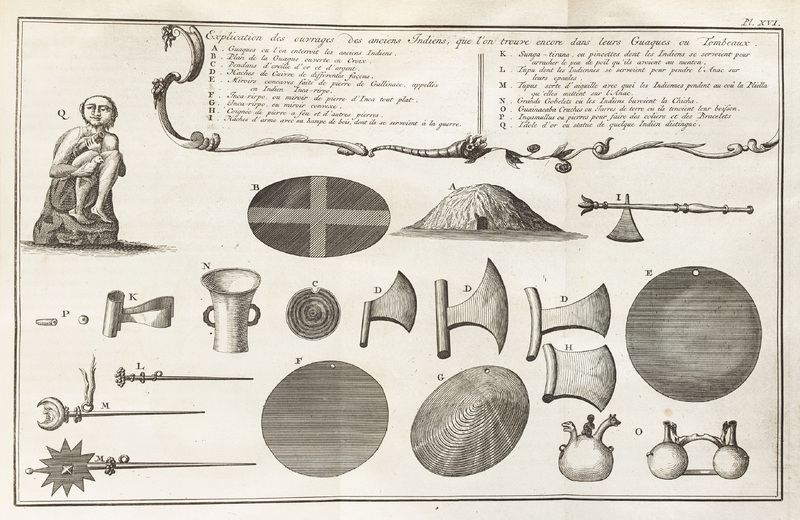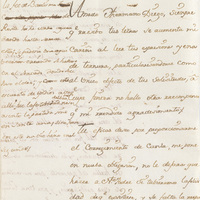
Alcabala (expressed on the letters as alcavalas): tax of the value or price paid to the treasury by the seller in the sales contract and both contracting parties in the exchange.
Audiencía(s): is the equivalent to a court system. The Diccionario de la REA (Real Academia Española) provides various definitions of the term but mostly related to monarchical Spain. The World History Encyclopedia defines the concept of audiencia as a judicial institution that began in medieval Spain, but in the 16th century it was applied as the highest local form of government in key cities of the Spanish Empire. An audiencia had a panel of judges who dealt with the political administration of a city and with certain criminal and civil legal matters affecting both settlers and indigenous peoples.
Ayuntamiento: equivalent to a city hall administration. According to RAE, it refers to a corporation integrated by the mayor and councilors of a municipality for its administration.
Borrasca (expressed on the letters as virrasca): atmospheric disturbance characterized by strong winds, abundant precipitation, and sometimes electrical phenomena.
Cámara: equivalent to a group of delegates such as a chamber (e.g. chamber of commerce), senate or house of representatives. In the context of the Montemar Letters, the Cámara de Indias is mentioned, which was an organization comprised of ministers of the Consejo de las Indias (Council of the Indies), that exerted the same functions with respect to overseas domains as the Chamber of Castile with respect to the Spanish peninsular territory.
Capellanía(s): foundation in which certain goods are destined to the fulfillment of masses and other pious charges.
Cédula(s): official document in which something is accredited or notified.
Consejo: collegiate body with the function of advising, managing, or directing an entity.
Consejo de Indias: according to PARES (Portal de Archivos Españoles), the Royal and Supreme Council of the Indies was created in 1524 as the highest peninsular body for the government and administration of the New World.
Created by Carlos I to mirror or replicate the Council of Castilla, it exercised full jurisdiction over the entire territory and its residents and had the legal capacity to order and execute all kinds of ordinances, rules and regulations that were for the good of the administered region. Only the king was above the Council of the Indies. This council was real because it advised the monarch and acted with it, it was universal because it knew all kinds of matters and all the states and kingdoms of the Indies were subject to it and finally it was supreme since there was no other institution above it except the royal one.
It disappeared definitively by the Royal Decree of March 24, 1834, which created the Supreme Court of Spain and the Indies for civil jurisdiction processes and the Royal Council of Spain and the Indies as an advisory body to which the ministries had to consult on matters serious of their departments.
The Chamber of the Indies was established in 1600 to deal with the provision of civil and ecclesiastical offices. It was made up of the president and three councilors and the Council of the Indies acted as secretaries. The Chamber was suspended in 1609, restored in 1644, suppressed again in 1701 and restored again in 1721.
Consulta: opinion that the councils, courts or other bodies gave in writing to the king, on a matter that required his royal resolution.
Corregimiento: territory under the jurisdiction of a corregidor. A corregidor was a mayor appointed by the king in some important towns to preside over the town hall and exercise various governmental functions.
Dispensa: privilege, gracious exception to what is ordered by general laws, and more commonly that granted by the pope or by a bishop.
Dita: payment in installments, in small amounts, set by the merchant or by the client and, sometimes, with increased interest without the client's knowledge.
Doblón(es): ancient gold coin, with different value according to the times.
Fanegada(s): agrarian measure that, based on the framework of Castilla, contains 576 square rods and is equivalent to 64,596 square areas, but varies according to the regions.
Hacienda(s): is a large estate or agrarian plantation with a dwelling house in a Spanish-speaking country.
Maravedí: an old Spanish currency, effective at times and imaginary at others, which had different values and qualifications.
Mayorazgo: institution of civil law that, by the unbinding laws of the 19th century, was limited in Spain to noble titles, and whose purpose is to perpetuate the ownership of certain assets or rights in the family in accordance with the conditions that are dictated when establishing it or, in the absence of them, to those prescribed by law.
Mecenas: a person that supports the arts or works of literature.
Naviero(s): owner of a ship or other vessel capable of navigating the high seas.
Navío(s): large, decked ship, with sails and strong structure, used for trade, post, etc.
Oratorio: a dedicated space in private houses where a holy mass is celebrated.
Real(es): currency with different value and craftmanship according to times and places.
Regidor (Rexidor): a mayor or member of a council.

